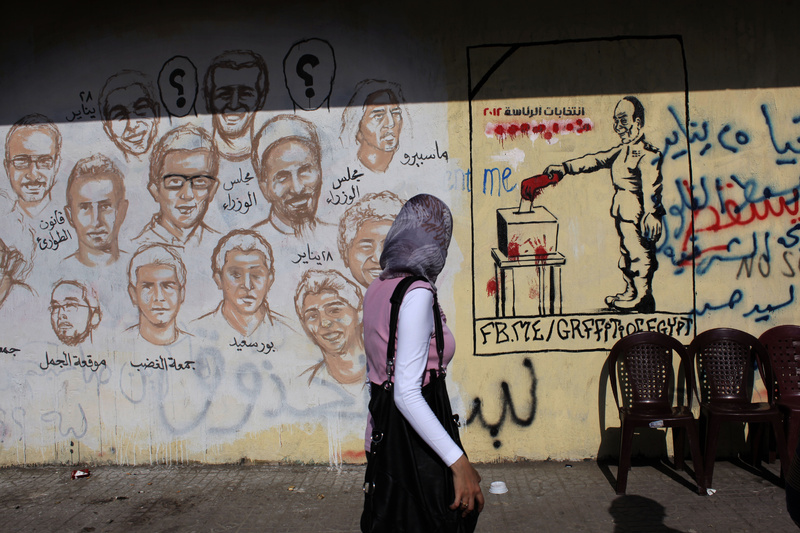It’s too early to say that Egypt’s presidential election has redeemed the promise of last year’s popular uprising against the country’s authoritarian president, Hosni Mubarak. A definitive verdict will depend on how the eventual winner chooses to govern (and on whether the military will allow him to govern). But the election, which began last week and is likely to continue in a runoff next month, was a powerful and poignant exercise in democracy.
Despite reports of irregularities at some polling places, more than 20 million Egyptians participated in a competitive election featuring candidates from across the political spectrum, including more and less doctrinaire Islamists and figures from the Mubarak era.
Some popular candidates, including Khairat Shater, the first choice of the Muslim Brotherhood, were unfortunately barred from the ballot by an election commission, but the roster remained a diverse one.
Although official results won’t be announced until Tuesday, the Brotherhood, which already dominates the new Egyptian parliament, has predicted that its candidate, Mohamed Morsi, will compete in a runoff next month against Ahmed Shafik, a former commander in the Egyptian air force who served briefly as prime minister in the waning days of the Mubarak regime. Other contenders include Abdel Moneim Aboul Fotouh, a somewhat more liberal Islamist; socialist Hamdeen Sabahi; and Amr Moussa, a former foreign minister and head of the Arab League.
A Morsi-Shafik contest would pose a stark choice between a representative of Egypt’s old order who has emphasized the importance of social stability and a candidate who would join with parliament in accentuating Egypt’s Muslim identity, though the extent to which he would promote Islamic law is unclear. In such a polarized race, both candidates could have difficulty attracting support from outside their core constituencies.
Now as during the protests against the Mubarak regime, scenarios about Egypt’s political future must reckon with the reality of the country’s ever-influential armed forces, which are likely to insist on an outsized role — and not just in defense policy — regardless of the election’s outcome. Bizarrely, Egyptian voters are electing a president before the powers of the office are defined in a new constitution. That state of affairs works to the military’s advantage in the coming struggle for influence.
Still, uncertainties about the future don’t detract from the fact that in this election, as in the parliamentary elections that were concluded earlier this year, Egyptians are practicing the democracy that was preached almost a year and a half ago in Tahrir Square. It’s a historic achievement.
Send questions/comments to the editors.



Success. Please wait for the page to reload. If the page does not reload within 5 seconds, please refresh the page.
Enter your email and password to access comments.
Hi, to comment on stories you must . This profile is in addition to your subscription and website login.
Already have a commenting profile? .
Invalid username/password.
Please check your email to confirm and complete your registration.
Only subscribers are eligible to post comments. Please subscribe or login first for digital access. Here’s why.
Use the form below to reset your password. When you've submitted your account email, we will send an email with a reset code.